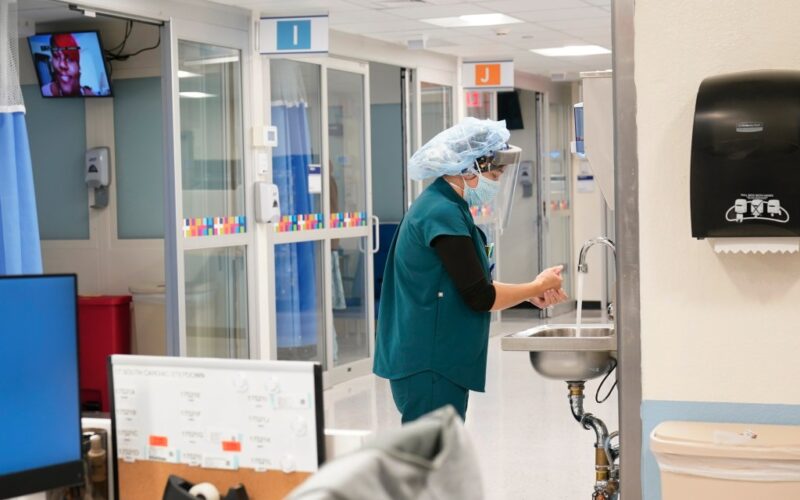Five years ago, New York was eerily quiet. Streets that typically buzzed with life were empty. Until 7 p.m. every evening. That’s when residents all over the city threw open their windows and climbed onto fire escapes, clapping, banging pots and pans, and shouting at full volume to salute the health care workers who were battling a novel coronavirus that had overrun the city.
The first confirmed case of COVID-19 in New York City was reported on March 1, 2020. By the middle of April, tens of thousands of people had fallen ill and more than 2,000 had died. Doctors, nurses and other health care workers weren’t just battling a virus; they were fighting for more personal protective equipment, ventilators and other life-saving equipment. They were making impossible choices every day, which is why so many New Yorkers shouted their encouragement every evening.
But the shattered city was further rocked when it learned that Dr. Lorna Breen of NewYork–Presbyterian Hospital had taken her own life on April 26, 2020, five years ago today. She had been a friend of mine for years; we were members of the same church and we volunteered on projects together. The city — and the whole country — mourned, terrified that the very people we relied on to care for us were on the brink of losing themselves.
According to her family, Breen had been working relentless 12-hour shifts for weeks, tending to patients who died in hallways and waiting rooms. At one point, she was managing the emergency rooms of two hospitals five miles apart.
In March, Breen contracted COVID herself after treating patients and was forced to isolate. During that time, Breen — exhausted, sleep-deprived, and sick — called her younger sister, Jennifer, and admitted how she felt. But Breen also confided she was seriously afraid of losing her job if her distress became known. Although Lorna had no history of depression, she believed seeking help could put the only career she had ever wanted at risk.
Jennifer initially believed her sister’s fears were unfounded. But after Breen died, her family discovered that health care workers in many places could be required to disclose any mental health concerns or treatment to state licensing boards and employers. And that disclosures could affect their credentials to work in the field.
Due to the widespread coverage of Lorna’s passing, the family heard from thousands of health care workers across the country, many of whom shared experiences with mental health stigma. According to Breen’s brother-in-law, Corey Feist, many people worried that any move to take care of their mental health could affect their jobs. “It was clear the industry was already broken, and now we’re layering a pandemic on top of it,” Feist said.
So the family established the Dr. Lorna Breen Heroes’ Foundation to fight for better mental health practices for workers in the health care industry. It works to improve workplace conditions, remove barriers to mental health care, and advocate for policies that support the well-being of health care workers.
The Dr. Lorna Breen Heroes’ Foundation is one of the few bright spots to emerge from that dreadful pandemic.
Due in part to the foundation’s efforts, more than 40 state licensure boards and 500 hospitals have revised licensing and credentialing application questions, making it safer for 1.25 million health care workers to seek mental health care. The Foundation also advocated for the Dr. Lorna Breen Health Care Provider Protection Act that was passed by Congress in 2022 to support mental well-being and suicide prevention for health care workers. And it has equipped 35,000 health care leaders to implement systems-level changes through the Impact Wellbeing Guide and its Caring for Caregivers program.
In recognition of its impact, in 2023 Jennifer Breen Feist and J. Corey Feist received the Surgeon General’s Medallion, the highest honor a surgeon general can bestow on civilians. Yet, the work is far from over. The Foundation is currently urging Congress to reauthorize the Lorna Breen Act so it can continue to fund efforts to support health care workers.
As the five-year anniversary of Breen’s death approaches, the worst days of the COVID pandemic has receded, but too many health professionals still face heavy workloads and high stress levels. “We can’t lose sight of the health care workforce, who tell us conditions are even worse now than during the pandemic,” Feist says.
Breen’s family will continue to honor her life by working to improve the lives of others. “We’ve heard from doctors, nurses, and students that Lorna’s story literally saved their lives. The message is more important now than ever.”
Ray Stanton is author of “Out of the Shadow of 9/11: An Inspiring Tale of Escape and Transformation.”








